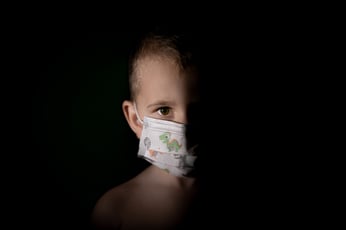Long COVID is a term used to describe symptoms that some people experience after they have COVID-19. People with long COVID may have the symptoms for extended periods after they recovered from their bout with COVID-19. However, despite knowing that it exists and some of the symptoms, the healthcare industry considers long COVID a mystery.

Where it Comes From
Medical professionals and researchers are unsure why some people develop long COVID symptoms, and others don’t. Furthermore, researchers and doctors don’t know how long COVID materializes. Those studying long COVID speculate it could stem from a person’s general well-being, the severity of their COVID-19 infection, and genetic or lifestyle habits. However, long COVID could exist because of a combination of those factors. Pinpointing the cause or preventing it is challenging because of unknown factors.
Because of the unknown origin of long COVID, researchers, and medical professionals are conducting clinical trials focused on studying long COVID. For example, researchers at Children’s National Hospital, in collaboration with the National Institute of Allergy and Infectious Diseases, are conducting a study on the long-term impacts of COVID-19 on children. They have successfully enrolled over 800 children. The enrollment period will end in the summer of 2023 with up to 2,000 participants. The U.S. Department of Health and Human Services and the Biden Administration have coordinated services to include raising awareness and providing additional funding for research.
What Researchers Have Learned
Since medical professionals and researchers began to study long COVID in children, they have begun to find answers. So far, they discovered that:
- Clinicians estimate that 5% to 10% of children have developed a range of continuous health problems identified as long COVID conditions. Previous estimates were as low as 1%, while others were 20%. Medical professionals and researchers agree that the number is somewhere between. In most cases, the children were healthy children before COVID-19 infected them.
- The average age of a child with long COVID is 13.
- Kids have a decreased chance of lung issues than adults.
- Most children with long COVID reports have approximately 10 symptoms. However, some report less and some more.
- Most children with long COVID symptoms recover within six months to a year of being diagnosed.
- Children who haven’t been vaccinated have an increased risk of developing long COVID conditions.
Long COVID Symptoms
Children can have the same symptoms of long COVID as adults. However, the most commonly reported symptoms in children are:
- Fatigue
- Difficulty concentrating
- Mood swings
- Symptoms last longer than a week or more
- Sleep issues
- Difficulty attending school
- Inability to engage in fun or social activities they enjoy
A report published by the Centers for Disease Control and Prevention (CDC) discovered that children who were infected with COVID-19 were “significantly more likely to experience smell and taste disturbances, circulatory signs and symptoms, malaise and fatigue, and musculoskeletal pain.”
Parents should make an appointment with their child’s doctor if these symptoms occur. While they may be signs of long COVID, these symptoms can also be symptoms of a different infection.
Treatment and Prevention
Treatment
Every child’s treatment for long COVID will be different. A pediatrician or doctor will examine the child, ask questions about when the symptoms first appeared, and look at their health and lifestyle before COVID-19 before they decide on a treatment plan.
Prevention
Medical professionals, public health officials, and researchers agree that the best way to prevent long COVID is for a child to receive any of the COVID-19 vaccines and stay up to date with their boosters. If you have any questions about vaccines or booster shots, you can talk with your child’s pediatrician or doctor. Another source of information is the CDC’s COVID-19 webpage.
Christina Sisti, DPS, MPH, MS is a bioethicist and health care policy advocate. She works to create awareness and improve health care policy for those with long-term health issues.

